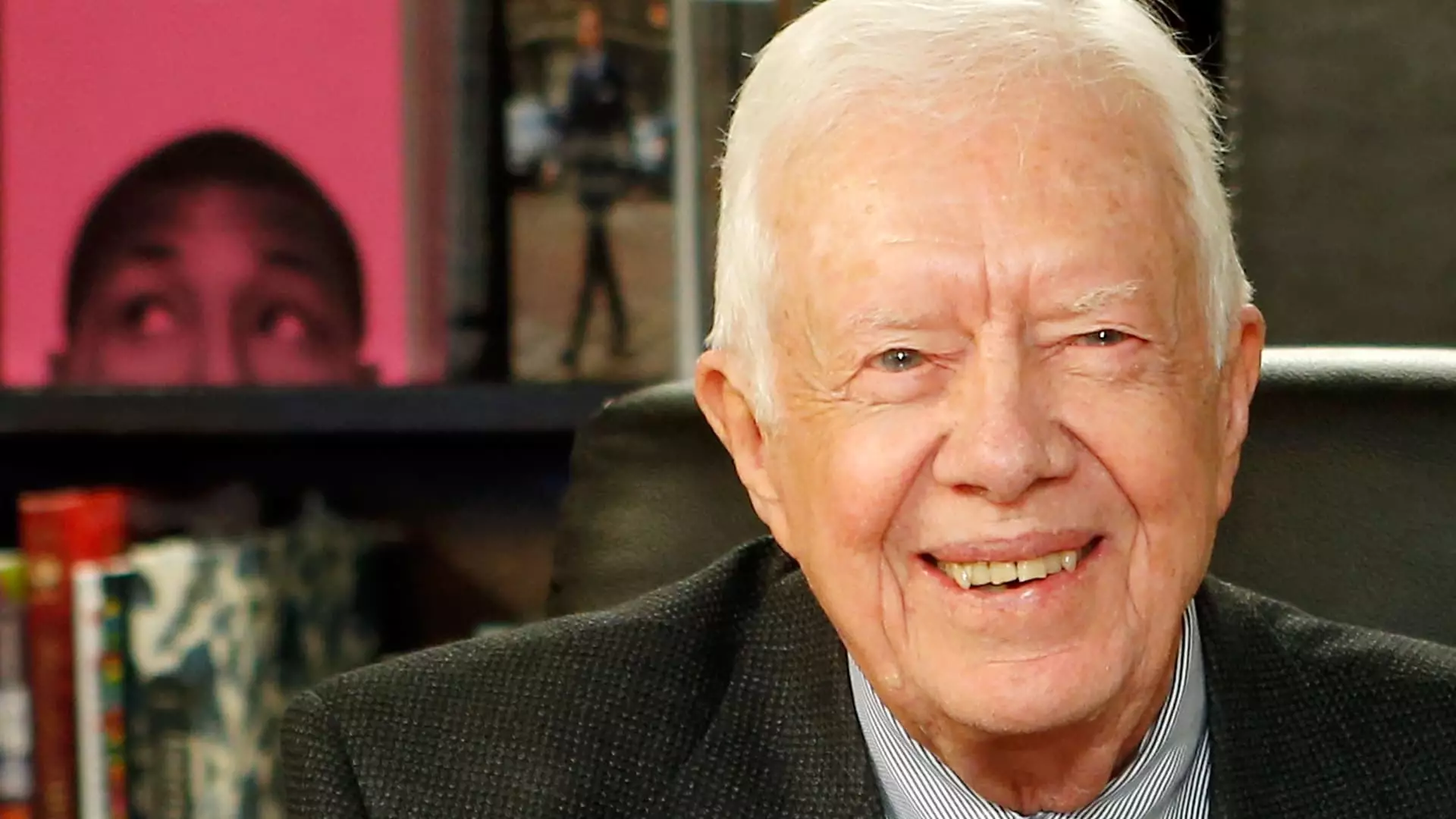Jimmy Carter, the 39th President of the United States, has always been a figure of profound complexity in American political life. His presidency left an indelible mark on both domestic and foreign policy and has often been regarded through the dual lenses of triumph and adversity. In this article, we will explore various facets of his political philosophy, leadership style, and his enduring legacy as an advocate for human rights and peace.
Born on October 1, 1924, in Plains, Georgia, Carter’s early life was steeped in southern American values that emphasized service and community. This background shaped his worldview and motivated his entrance into politics, initially serving in the Georgia State Senate before ascending to the governorship. His acceptance speech at the Democratic National Convention in 1976 marked the moment he entered the national spotlight, a poignant moment underscored by his commitment to honesty and integrity in governance.
Carter positioned himself as a beacon of morality in a turbulent political climate characterized by disillusionment and scandal. His declaration that he was “running for president” resonated with an electorate yearning for a return to ethical governance, a reflection of his own introspection. The candidacy was not born merely from ambition but rather an overwhelming desire to serve the American people with sincerity.
Carter’s moral compass deeply influenced his leadership and decision-making processes. His admission of personal failings in an interview with Playboy magazine exemplified a candidness that was both refreshing and controversial. By acknowledging his imperfections, he spoke to the human condition, yet critics seized upon these revelations to question his judgment. This paradox illustrates the difficulties leaders face when balancing personal ethos with public expectations.
His administration was marked by a commitment to human rights domestically and internationally, a belief eloquently articulated during his inaugural address in 1977. With phrases laden with the importance of freedom and moral responsibility, Carter urged a global awareness of human rights abuses, challenging America to stand as an exemplar of decency in a world rife with tyranny. This advocacy for human rights, which emerged as a cornerstone of his foreign policy, was not without its challenges, often placing him at odds with political allies.
Carter’s presidency faced unprecedented challenges, the most pressing of which was the energy crisis of the late 1970s. In his national address on April 18, 1977, he framed the energy challenge as the “moral equivalent of war,” calling for a united national effort to conserve energy and develop alternative sources. He recognized that the path to progress would require sacrifice and collective action, emphasizing that the well-being of the nation hinged on its ability to confront this crisis.
This call to action was indicative of his broader approach to leadership, one that prioritized national unity over partisanship. Yet, this unifying message was often drowned out by the burgeoning opposition, highlighting the difficulty of enacting long-term policy changes in a polarized political landscape.
A Legacy of Peace and Principles
Carter’s foreign policy was notably defined by diplomacy, exemplified in his successful mediation of the Camp David Accords between Egypt and Israel. The normalization of diplomatic relations with China further underscored his commitment to peaceful negotiation over military intervention. In hindsight, these initiatives appear as hallmarks of a presidency devoted to global peace and human rights.
Despite these successes, Carter often faced criticism for his perceived inability to manage international crises effectively, such as the Iran Hostage Crisis. He later reflected on how taking military action would have been politically expedient but morally repugnant. His presidency personified the struggle between the desire for power and the commitment to ethical governance, a dilemma faced by many leaders.
The Enduring Spirit of Hope and Redemption
Carter’s post-presidency life has been marked by humanitarian work and advocacy, particularly through the Carter Center, where he and his wife, Rosalynn, have dedicated their lives to fighting diseases and promoting democratic governance around the world. His efforts earned him the Nobel Peace Prize in 2002, a recognition that cemented his legacy as a champion of human rights.
Even in the face of personal adversity, such as his battle with cancer, Carter has maintained an outlook characterized by grace and acceptance. His profound faith has provided him solace in challenging times, reflecting a life lived with purpose and integrity. He has consistently advocated for a more compassionate and understanding world, with an unwavering belief that humanity can rise to its better angels.
Jimmy Carter’s presidency and subsequent advocacy serve as a reminder that effective leadership is rooted in moral conviction, empathy, and a commitment to peace. His legacy inspires ongoing dialogue about the roles of ethics and humanity in governance, leaving an indelible mark on the fabric of American history. His life demonstrates that true leadership transcends power; it resonates in acts of service, dedication to human rights, and the pursuit of peace in an often chaotic world.

Leave a Reply